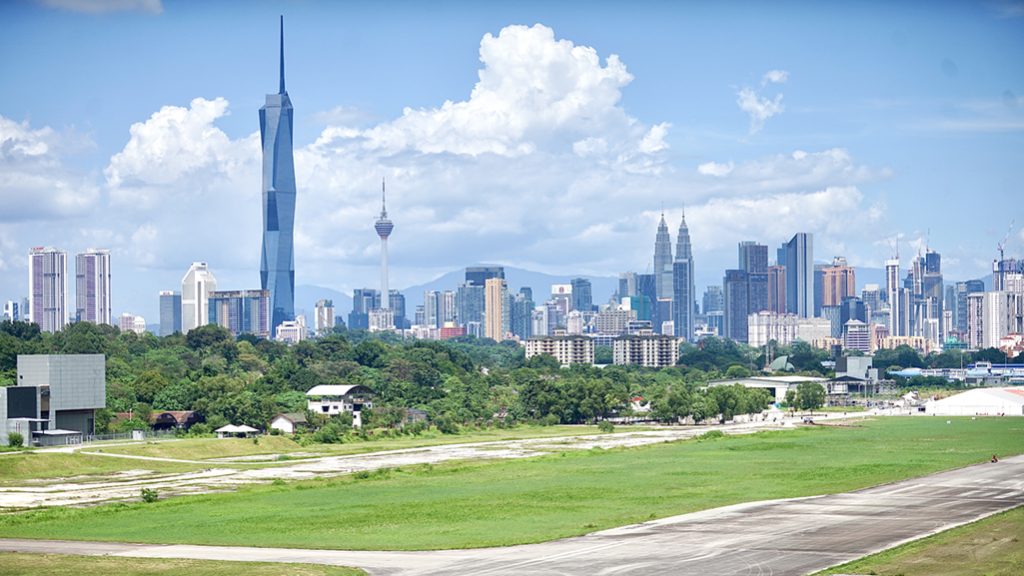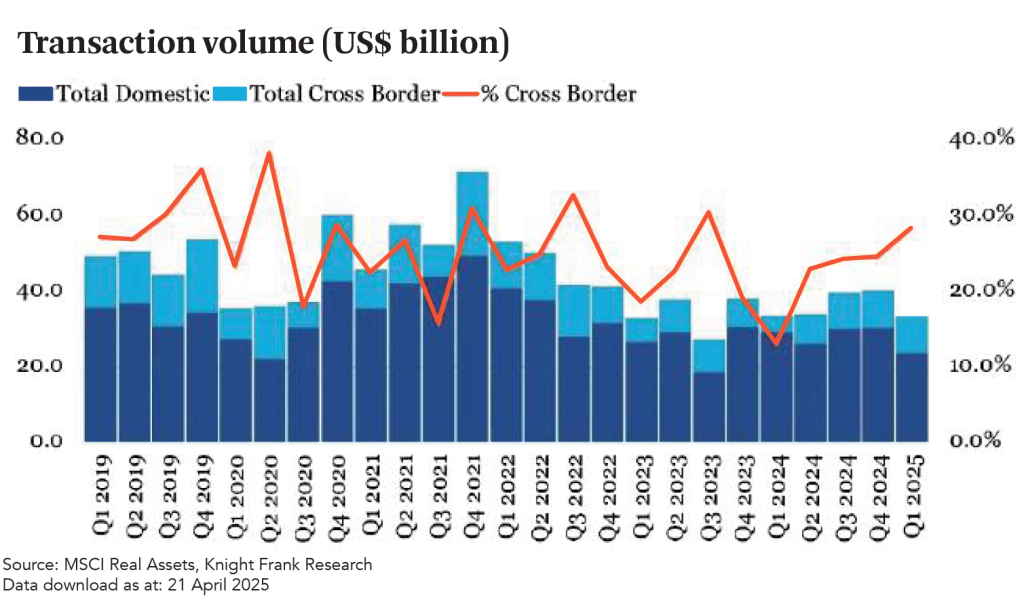
MALAYSIA is beginning to see tentative momentum in cross-border real estate investment, buoyed by improving fundamentals, attractive yields and increasing regulatory transparency, amid a regional surge in capital flows.
According to Knight Frank’s latest Asia-Pacific Capital Markets Insights report, cross-border investments into Asia-Pacific commercial real estate more than doubled to US$9.5 billion (RM45.5 billion) in the first quarter of 2025 (1Q25), marking a significant rebound despite ongoing macroeconomic uncertainties.
“Malaysia offers improving fundamentals, an evolving REIT market and increasingly transparent regulations. While investor caution remains, the region’s overall momentum offers reasons for optimism,” said Knight Frank Malaysia group MD Keith Ooi.
“We are observing early signs of revived cross-border investor interest in Malaysia, particularly among those reassessing South-East Asia’s growth potential,” he added.
Although Malaysia was not among the top destinations for cross-border capital in the quarter, Knight Frank observed a growing number of investment enquiries targeting Greater Kuala Lumpur, Penang’s industrial corridors and Johor’s logistics and residential hubs.
“Investors who once focused only on core markets are now eyeing Malaysia, albeit carefully,” noted Knight Frank Malaysia ED of Capital Markets-Investments James Buckley.
“The industrial and data centre sectors are attracting funds, as are hotels, given the rebound in tourism which is leading to improved occupancy and average daily rates. We are seeing exploratory interest that could convert into transactions if key policy and macro indicators stabilise.” he said.
Regionally, total real estate investment in Asia-Pacific stood at US$33.4 billion in the 1Q25, down just 0.8% year-on-year (YoY), though activity declined 17.1% quarter-on-quarter (QoQ).
Cross-border deals made up 28.4% of the total — the highest proportion since 3Q23 — suggesting improving global investor appetite.
Malaysia’s competitive advantages include its strategic location, mature logistics infrastructure and established manufacturing base.

Nonetheless, investors remain wary of risks such as currency volatility, policy clarity and oversupply in retail and residential sectors.
Knight Frank expects transaction volumes in Malaysia to pick up in 2Q25, contingent on economic stability and firmer policy direction.
Asia-Pacific investment sentiment has been supported by stabilising asset prices and a belief that interest rates have peaked.
“Asia-Pacific’s real estate market held up well in 2025, with cross-border investment activity reflecting sustained interest, particularly in Japan, Australia and South Korea,” said Knight Frank Asia-Pacific CEO Craig Shute.
“Stabilising asset prices and the clear signal that interest rates have peaked encourage investors to support renewed capital deployment,” he said.
Still, global headwinds could temper recovery.
Knight Frank Asia-Pacific head of research Christine Li warned that uncertainty around tariffs and trade policies might weigh on the outlook.
“If implemented in full force, the industrial and retail sectors will likely bear the brunt, with decreasing consumer spending and shifting goods movement directly influencing demand,” she said.
Even so, investor appetite for quality office assets in key cities such as Tokyo, Sydney and Melbourne remained firm, underpinned by high occupancy rates and stable rental yields.
As South-East Asia’s second-largest economy, Malaysia could benefit if tentative interest evolves into sustained capital flows, particularly as investors look beyond traditional safe havens for diversification and long-term growth. — TMR
- This article first appeared in The Malaysian Reserve weekly print edition
The post Malaysia sees early signs of cross-border capital return as APAC hits RM46b appeared first on The Malaysian Reserve.
